Buying a home is a daunting process for anyone. With so much fine print to read, options to consider and decisions to make, it’s no wonder we often hire somebody to help us with the process. If you’re self-employed, you might face even more challenges with loans, deductions and more.
There are many ways to side step those challenges, and some of the most commonly heard issues aren’t even true. So don’t fret just yet, use these tips to make the process of buying a home as a self-employed person easier and less stressful.
1. Don’t Fall for the FHA Loan Myth
One of the biggest misconceptions around FHA Loans is that self-employed people are not eligible for them. This is simply not true. While your small business may take some time to get off the ground and become profitable, once they become established and start providing a steady stream of revenue, they’re treated the same as any other type of income.
Poor record keeping, though, makes it hard for a self-employed person to be approved for FHA loans. The key thing to remember is that even if you know your business is profitable, your records must clearly show it. That’s why it’s important to keep meticulously thorough records and plan well in advance—as early as two years before you purchase the home.
2. Reconsider Your Deductions
Business expenses and tax deductions make most freelancers and self-employers giddy with delight around tax season. However, they also bring some drawbacks. Having a great number of business expenses decreases the income that is reported on tax returns, as these documents show income after expenses. It’s a good idea to plan accordingly, and try to minimize business expenses in the year or two leading up to buying a home.
Bankrate notes that some lenders understand this predicament of self-employment, and may allow you to add some of your deductions back in. Be sure to check with potential lenders to see if this will be an option well in advance.
3. Separate Business and Personal Finances
If you’re not doing so already, it’s imperative to keep your business and personal expenses segregated. In the event of an IRS audit, you’ll be required to differentiate between business and personal expenses. If this should ever occur, you’ll have a much easier time sorting through finances that were separated from the get-go.
Use whatever kind of record keeping or accounting system you’d like, just make sure there’s a clear line between your money and your business’ money. Use free printable tax organizers to make sure you’re tracking the right financial data, both personally and for your business.
4. Look for Lending Alternatives
There’s more than one way to buy a home. Do plenty of research on all your options, and be sure to consider those that may not be typically used. Sometimes these options are so (relatively) simple that you may not even consider them, like borrowing from a family member, or borrowing from your IRA or 401(k), for instance.
The home loan market is slowly starting to catch up with the increase in self-employment, offering alternative loans that can be great for those who work for themselves. For instance, some specialty banks offer “alternative income verification loans.” This type of loan looks at overall cash flow rather than taxable income, which can be advantageous for small business owners.
However, these and other alternative loans often come at the cost of high fees and down payments.
5. Plan Carefully Around Taxes
One of the least-pleasant side effects of the freelance life is the daunting, overwhelming prospect of filing and paying taxes. Because you’re both employer and employee, you must pay both the employer and employee shares of Social Security/Medicaid taxes. Furthermore, taxes aren’t regularly deducted from your paycheck; they should be paid quarterly. As such, it’s easy for unexpected payments and expenses to creep up on the self-employed.
Be sure to keep careful track of your taxable income, deductions and quarterly estimated tax payments. The quarterly due dates are April, June, September and January 15th, so if you’re making a down payment around those times, be sure to account for the extra expense.
6. Have a Backup Plan
It’s never a bad idea to have an emergency fund saved up. When you’re self-employed, though, it’s almost necessary. A sizeable cache of savings will help you make payments if your business takes a turn for the worse, and will show potential lenders that you’re a responsible borrower. Plus, it could help you make an even bigger down payment.
Buying a house when you’re self employed is not impossible—it can be done if you plan ahead, know where to look for lending and file the right paperwork at the right time. Use these tips and speak with a financial advisor to make your house-buying process as exciting as it should be.
